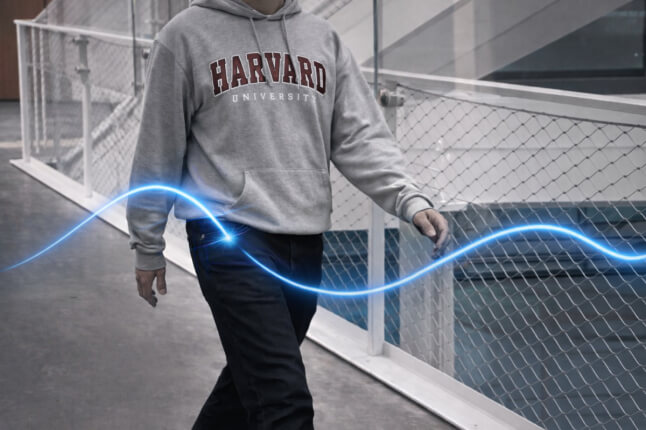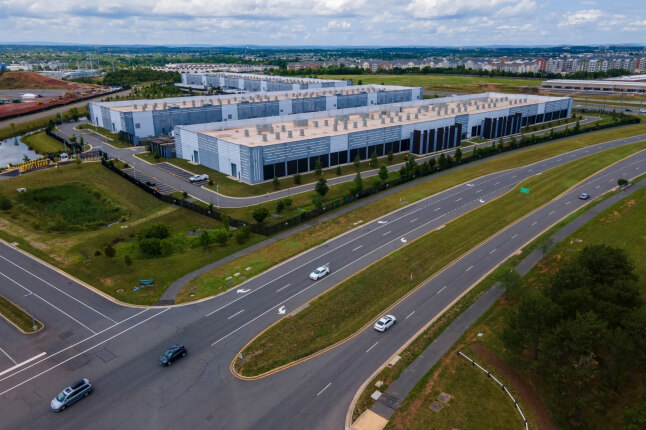News
Xavier Morales and Benjamin Chang have pursued different educational and extracurricular paths during their four years at the Harvard John A. Paulson School of Engineering and Applied Sciences (SEAS). Morales is an applied math concentrator and president of Voters Choose, a student organization focused on electoral reform. Chang, a double concentrator in computer science and chemical and physical biology, is co-president of the Harvard OpenBio Laboratory, which aims to make bioengineering and synthetic biology research more globally accessible.
The duo may have different academic interests, but they share a goal: to use their passions to address global challenges and needs.
“I've always been interested in how technology can be used to democratize resources and power in society,” Chang said.
We've been able to see how digital technology has made information and communication abundantly accessible to almost everyone in the world. Now, synthetic biology promises to lead a similar revolution for making physical resources – food, energy, medicine – abundantly accessible to all as well.
Morales and Chang were recently among 10 Harvard students named 2024 Rhodes Scholars. Following graduation in the spring, they’ll pursue graduate degrees at the University of Oxford in the United Kingdom.
“It feels amazing. I was shocked,” Morales said. “One of the reasons I love Harvard so much is that I'm constantly surrounded by people smarter than me, and that constantly makes me want to try harder. It always leads me to learn and expand my horizons. As a Rhodes Scholar, I’ll be surrounded by people trying to change the world in a positive way, and that’ll cause even more transformation in me.”
At Oxford, Morales plans to study philosophy. Though not a hard science, Morales said he sees philosophy as a way to understand the values important to individuals and society. Philosophy can act as a guide to help scientists determine the areas that will have maximum benefit.
“If you look at all the people who worked on quantum mechanics when it first emerged as a theory, all of them solidly understood the philosophical implications of what they were doing,” Morales said. “It wasn’t until a couple of decades later when the paradigm shifted to ‘shut up and calculate,’ and only recently have we seen the interest in philosophy come back."
Philosophy can help articulate our ambition in terms of what we want for society and can guide us as we do science for the betterment of society.
Computer science and bioengineering have been critical to Chang since he arrived on campus, and especially since co-founding OpenBio, a SEAS-affiliated student organization based out of the Active Learning Labs, in the fall of 2022. He plans to continue studying those areas at Oxford as a graduate student.
"My academic pursuits at Oxford feel like a natural extension of my undergraduate journey, as I continue to explore how to better computationally engineer biology," Chang said."Bioengineering has huge potential to enable widespread human flourishing, so it's important that we make these technologies accessible in our own communities, too."
The Harvard Rhodes Scholarship application process usually begins in August, when students submit academic and personal statements and request teacher recommendations. Candidates who receive Harvard’s endorsement then submit their Rhodes Scholar applications in September, and potential scholars are brought to district interview weekends later in the fall.
“Our district's panel consisted of congressmen, professors, veterans, and leaders in various fields, so the interview was like nothing I'd ever experienced before,” said Chang, who is from California. “But the real highlight of the interview process was meeting the other finalists in my district. For most of the day, I forgot I was there for an interview and just enjoyed talking with these brilliant students from all over the country. I’m lucky to have become great friends with many of them.”
Morales, who is from Puerto Rico, hopes to use his graduate degree to address issues such as voting reform and poverty, but hasn’t yet decided the best way to do that. He recognizes the need for community-minded leaders and politicians, so he could join a leadership training nonprofit organization. But technology can also help address these issues, and tech start-ups need funding, so he could pursue a career in finance. Tackling big challenges will likely require a multidisciplinary approach, and he hopes studying philosophy at Oxford can help him learn how to do that.
“Philosophy, if anything, for me is a way to synthesize different perspectives and be able to look at them from a higher point of view,” he said. “If we’re thinking about democracy or voting reform, it’s not just about philosophy or theory. It’s also about the tangible impact on people, and you need math, economics, psychology and biology for that. I hope I’ll be able to use philosophy to look at all of those fields at the same time.”
Topics: Academics, Applied Mathematics, Awards, Computer Science
Cutting-edge science delivered direct to your inbox.
Join the Harvard SEAS mailing list.
Press Contact
Matt Goisman | mgoisman@g.harvard.edu


